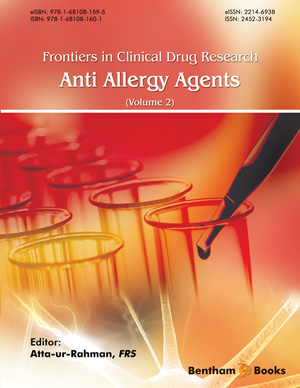Abstract
In recent times, allergy has become a financial, physical and psychological burden to the society as a whole. The rise in allergy trends has reached panic proportions since the early 1990’s and well into the 21st century. As suggested by the hygiene hypothesis, a western way of life paves way to an atopic individual with a weaker, more prone immune system, which is synonymous with excessive IgE antibody production. Allergy affects people from all walks of life; young and old and can be lifethreatening in some situations. Recently, cytokines IL-4 and IL-13 have been identified as the main interleukins that play a critical role in allergy. In atopic individuals, a Th2 type profile of T cells exists rather than the Th1 subset in non-atopic individuals. This Th2 cell variation results into a different profile of cytokines such as IL-4 and IL-13. This consequently shifts antibody production from one of IgG to IgE profile. Upon exposure to foreign antigens or allergens, these cytokines cause a cascade of events eventually leading to the release of chemical mediators such as histamine that cause the allergy symptoms.
Allergic symptoms may vary from a mild sneeze to a full-blown anaphylactic shock, which may result in death. Developments in allergy drugs have been limited to counteracting the symptoms but not the allergic cascade itself raising concerns about quality of life. However, new frontiers in clinical drug research have been unfolded in recent years to tackle this problem. Drugs such as antihistamines and non-steroidal antiinflammatories are in use for suppressing allergy symptoms. Other techniques such as specific immunotherapy, antibodies and most recently peptide antagonists have been investigated for their potentiality against cytokines and allergy. However, a shadow of skepticism and doubt still persists with all these developments. Many researchers have drawn their attention particularly to IL-4 and IL-13 cytokines along with their receptors as novel therapeutic targets for allergy intervention. This chapter will focus on recent developments in this particular field and shed some light on anti-allergy agents that inhibit cytokines.
Keywords: Allergens, allergy, anti-allergy agents, cytokines, IgE antibody, T cells.






















